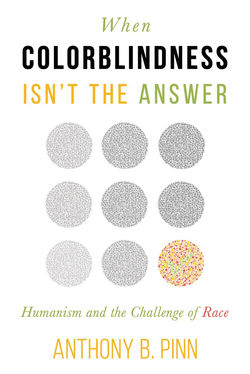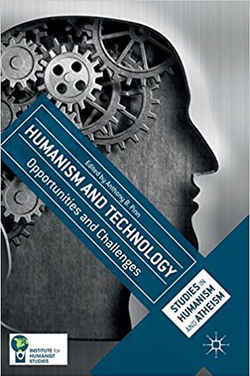 |  |  |  |  |
|---|---|---|---|---|
 |  |  |  |  |
 |  |  |  |  |
 |  |  |  |  |
 |  |  |  |  |
 |  |  |  |  |
 |  |  |  |  |
 |  |  |  |  |
 |  |  |  |
Books
Interplay of Things: Religion, Art, and Presence Together
Anthony B. Pinn
Duke University Press (2021)
In Interplay of Things Anthony B. Pinn theorizes religion as a technology for interrogating human experiences and the boundaries between people and other things. Rather than considering religion in terms of institutions, doctrines, and creeds, Pinn shows how religion exposes the openness and porousness of all things and how they are always involved in processes of exchange and interplay. Pinn examines work by Nella Larsen and Richard Wright that illustrates an openness between things, and he traces how pop art and readymades point to the multidirectional nature of influence. He also shows how Ron Athey's and Clifford Owens's performance art draws out inherent interconnectedness to various cultural codes in ways that reveal the symbiotic relationship between art and religion as a technology. Theorizing that antiblack racism and gender- and class-based hostility constitute efforts to close off the porous nature of certain bodies, Pinn shows how many artists have rebelled against these attempts to counter openness. His analyses offer a means by which to understand the porous, unbounded, and open nature of humans and things.
The Oxford Handbook of Humanism (Oxford Handbooks Series)
Edited byAnthony B. Pinn
2021
While humanist sensibilities have played a formative role in the advancement of our species, critical attention to humanism as a field of study is a more recent development. As a system of thought that values human needs and experiences over supernatural concerns, humanism has gained greater
attention amid the rapidly shifting demographics of religious communities, especially in Europe and North America. This outlook on the world has taken on global dimensions as well, with activists, artists, and thinkers forming a humanistic response not only to traditional religion, but to the
pressing social and political issues of the 21st century.
Humanism: Essays on Race, Religion and Popular Culture
Anthony B. Pinn
Bloomsbury Academic (2015)
The demographics of the United States are changing, marked most profoundly by the religiously unaffiliated, or what we have to come to call the "Nones". Spread across generations in the United States, this group encompasses a wide range of philosophical and ideological perspectives, from some in line with various forms of theism to those who are atheistic, and all sorts of combinations in between. Similar changes to demographics are taking place in Europe and elsewhere.
This volume provides a much-needed humanities-based analysis and description of humanism in relation to these cultural markers. Whereas most existing analysis attempts to explain humanism through the natural and social sciences (the "what" of life), Anthony B. Pinn explores humanism in relation to "how" life is arranged, socialized, ritualized, and framed.
Introducing African American Religion
Anthony B. Pinn
Routledge (2013)
This book offers a creative and unique approach to the history of African American religion. Tracing what it has meant to be African American and religious within the context of the United States, it provides a vital snapshot of some of the traditions that have shaped the religious imagination of the country. Major themes and problems encountered by African Americans involved in a variety of traditions are depicted in a clear and engaging fashion.
The End of God-Talk: An African American Humanist Theology
Anthony B. Pinn
Oxford University Press (2012)
The End of God-Talk outlines the first systematic African American non-theistic theology. Pinn offers a new center for theological inquiry, grounded in a more scientific notion of the human than the imago Dei ideas that dominates African American theistic theologies. Through a turn to embodied human life as the proper arena and content of theologizing, Pinn's The End of God-Talk opens up a new theological path with important implications for ongoing work in African American religious studies.
Embodiment and the New Shape of Black Theological Thought
Anthony B. Pinn
NYU Press (2010).
Black theology tends to be a theology about no-body. Though one might assume that black and womanist theology have already given significant attention to the nature and meaning of black bodies as a theological issue, this inquiry has primarily taken the form of a focus on issues relating to liberation, treating the body in abstract terms rather than focusing on the experiencing of a material, fleshy reality. By focusing on the body as a physical entity and not just a metaphorical one, Pinn offers a new approach to theological thinking about race, gender, and sexuality.
Understanding and Transforming the Black Church
Anthony B. Pinn
Cascade Books (2010)
What is the nature and purpose of the Black Church? What is the relationship of the scholar of religion to the Black Church? While black churches have been a major component of the religious landscape of African American communities for centuries, little critical attention has been given to these questions outside an apologetic stance. This book seeks to correct this trend by examining some of the major issues facing black churches in the twenty-first century.
The African American Religious Experience in America
Anthony B. Pinn
Greenwood Press (2005)
The African American Religious Experience in America provides readers with an introduction to the tremendous religious diversity of African American communities in the United States, with snapshots of 11 religious traditions practiced by African Americans—from Buddhism to Catholicism, from Judaism to Voodoo. Each snapshot provides readers a better understanding of how African Americans practice their faiths in the United States.
African American Humanist Principles: Living and Thinking Like the Children of Nimrod
Anthony B. Pinn
Palgrave Mcmillan (2004)
As Anthony Pinn argues in his latest collection, humanism comes in many colors. Using the biblical figure Nimrod as symbol, African American Humanist Principles demonstrates African American humanists' intellectual and praxis-related grounding in a history of rebellion against over-determined and oppressive limitations on human doing and being. Pinn maintains that it is this quest for a fuller sense of being -- for greater existential and ontological worth -- that informs the basic principles of African American humanism.
Terror and Triumph: The Nature of Black Religion
Anthony B. Pinn
Fortress Press (2003). Expanded 20th Anniversary Edition published July 2022.
Scholarly and eminently readable, Anthony Pinn's thoroughly researched and authoritatively presented history will be welcomed by students, scholars, and general readers alike. With exquisite attention to cultural detail and a brilliant interpretation of interdisciplinary sources, Terror and Triumph is essential reading for all who want to understand better the terror of human cruelty and the triumph of embodied resiliency.
The Black Church in the Post-Civil Rights Era
Anthony B. Pinn
Orbis Books (2002 (2nd Printing May 2003, 3rd Printing May 2004, 4th Printing May 2008, 5th Printing March 2009).
Pinn describes themes in the history of the Black Church as well as the major beliefs and forms of worship that define this tradition. He then focuses on the practices of the Black Church, especially as it has engaged in issues of economic development and justice, and struggles with such issues as the full inclusion of women, sexuality, and health. Throughout, Pinn highlights the important and creative tension between "spiritual" and "mundane" concerns to which the Black Church must respond and by which it is shaped.
Varieties of African American Religious Experience
Anthony B. Pinn, Editor
Fortress Press (1998). Expanded, 20th Anniversary Edition, published in 2017.
Based on extensive interviews, travel, and research -- embellished with ample photos, bibliographies, and case studies -- Pinn provides an insider look at Voodoo, Orisha devotion, Santeria, the Nation of Islam, and Black Humanism in the U.S. Focusing less on institutional and doctrinal history and more on the varied popular religious practices and sites, his volume offers an emergent picture of African American Religion, more subtle, varied, and vibrant than traditional black Christian marks a new era in African American religious studies.
Why Lord? Suffering and Evil in Black Theology
Anthony B. Pinn
Continuum Hardcover (1995), Cassell Paperback (1999). Chinese Edition/ The Institute of Sino-Christian Studies (Hong Kong), 2006.
In Pinn's first monograph, he takes the mantle of African American humanism from William R. Jones and outlines an early position of strong humanism as a theological response to moral evil as faced by the African American community. A must read for anyone interested in contextual theology or theology in the twenty-first century, Why Lord? adds substantially to the breadth and depth of black theology and provides a firm foundation from which Pinn's later work develops.
CO-AUTHORED BOOKS
A Master Class on Being Human: A Black Christian and a Black Secular Humanist on Religion, Race, and Justice
Brad Braxton and Anthony Pinn
(Boston: Beacon Press), forthcoming
A conversation between 2 eminent Black thinkers on how to work together to make the world a better place despite deep religious differences
Brad Braxton and Anthony Pinn represent two traditions—Christianity and Secular Humanism respectively—that have for centuries existed in bitter opposition. For too long, people with different worldviews have disparaged and harmed one another. Instead of fighting each other, Braxton and Pinn talk with, listen to, and learn from one another. Their wide-ranging conversation demonstrates the possibility of fruitful exchange that accounts for—rather than masks—their differences.















